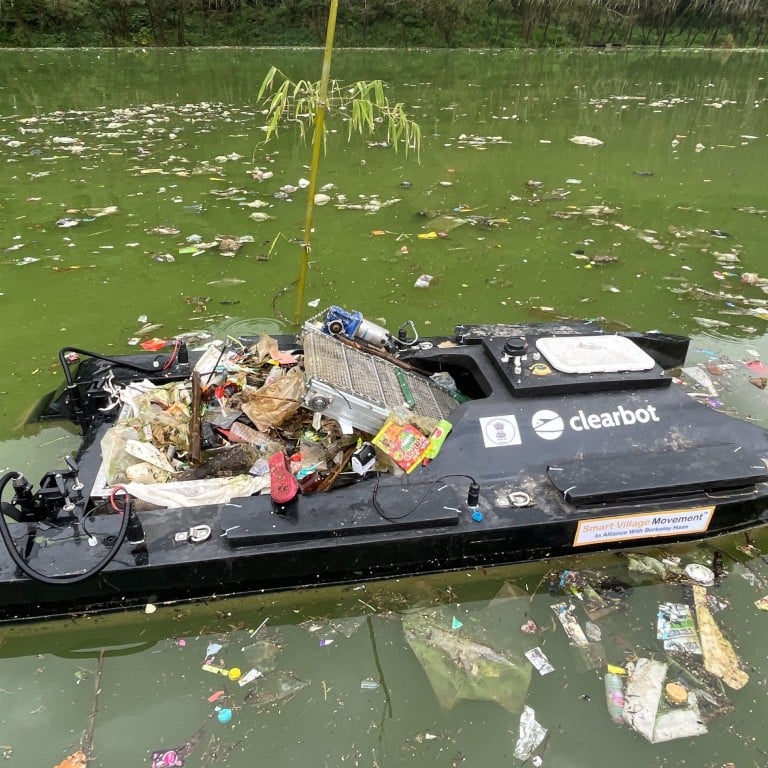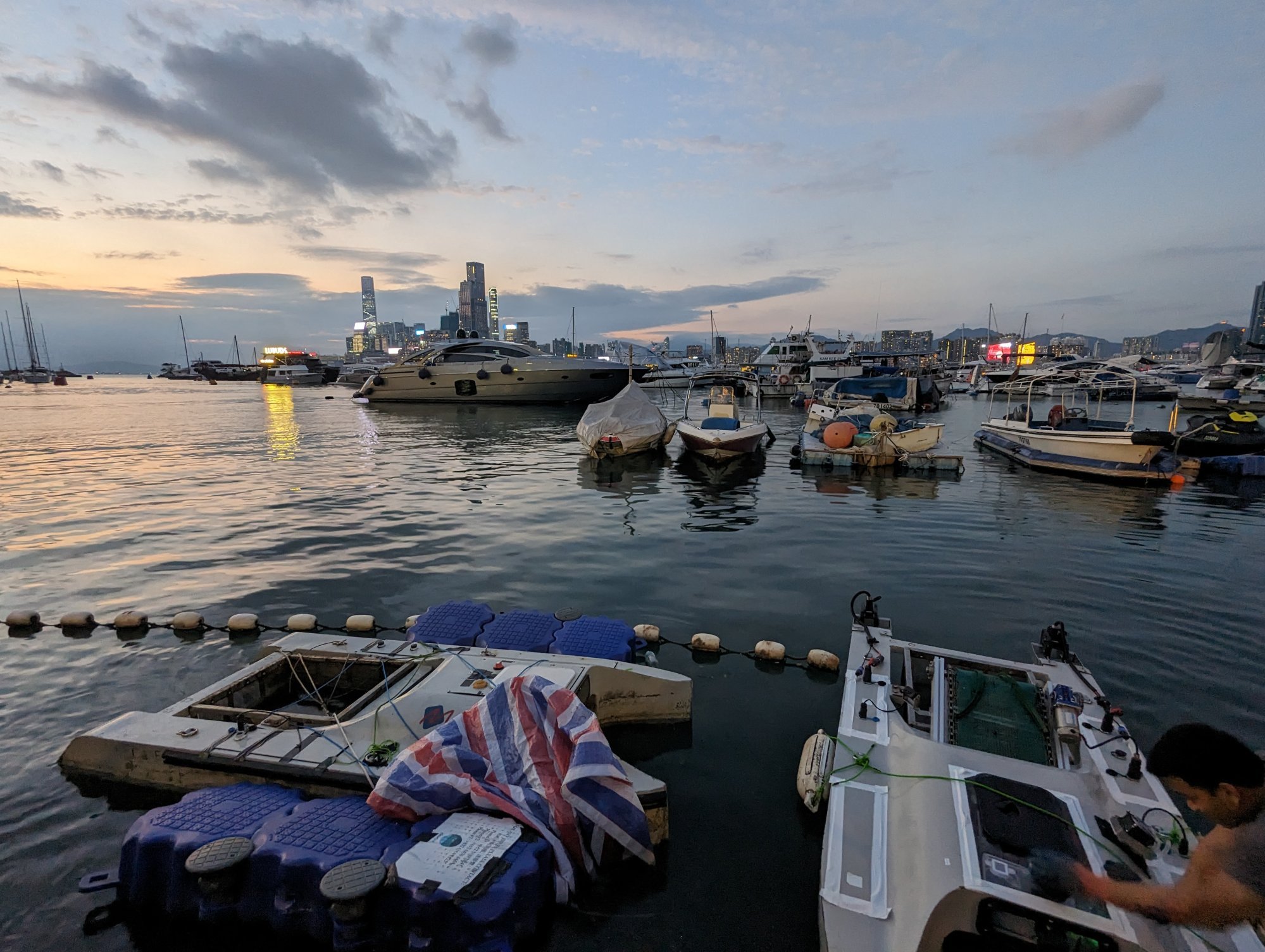
The start-up founded by University of Hong Kong graduates is hoping to electrify the marine services industry, according to Utkarsh Goel, co-founder and chief technology officer.
Established in 2019, Clearbot started off as a student project to help Indonesian surfers clean up waterways efficiently, as locals were unable to deal with the flow of rubbish. The project led Goel and co-founder Sidhant Gupta to understand the demand for sustainable infrastructure in the marine services industry globally.
In the past year, Clearbot has deployed 13 boats which can each collect up to 250kg of plastic waste per day to tackle projects in Hong Kong and India, Goel said. The self-navigating electric vessels collect waste from the surface of the water and deposit it in designated areas for collection and recycling.
Clearbot did a pilot project in September in the northeast Indian city of Shillong, showcasing its ability to collect 600kg to 700kg of waste from a lake there in the space of three days. It also has a project in Bengaluru in southern India.
“Most of the growth that our company expects to have is in India. We expect to scale up in India because there is enough demand,” said Goel.
“In India there’s huge volumes of trash [in the waters], and this year we are hoping that we will make a real impact with the product that we have.”
Clearbot has started carrying out demonstrations of its new, bigger boats for commercial use in India, and hopes to deploy them in the next year, said Goel.

At least 11 million tonnes of plastic enter the world’s oceans every year, equivalent to one truckload being dumped into the sea every minute, creating substantial threats to the marine ecosystem and to humans, according to environmental group WWF.
Plastics account for at least 85 per cent of total marine waste, according to the United Nations.
Polluting the oceans will not only harm marine biodiversity, but also damage the natural ecosystems’ ability to act as a carbon sink to absorb greenhouse gases from the atmosphere.
Clearbot produces absolutely no carbon emissions, because it uses solar energy to power its fleet of electric boats, rather than diesel.
“There’s a huge potential for disruption in this space because we see that the current boats that are operating for all kinds of marine tasks are very polluting,” said Goel. “We want to be the leader that brings in the electric revolution, like Tesla has done for cars.”
Clearbot rents out its boats under contract for a fixed amount on a monthly or daily basis.
“We do this just like any other marine service – we provide our robots as a service,” said Goel. “We’ve generated enough revenue to keep ourselves afloat and keep our business running.”
In 2022, Clearbot launched a one-year partnership with Sino Group to clean up the marina at the developer’s Gold Coast residential complex in Tuen Mun.
Sino Land said it was the first developer in Hong Kong to provide a test bed for the autonomous cleaning boats in its 2022 sustainability report.
“We are actively discussing additional collaborations to further enhance our efforts in creating a healthier and more sustainable future,” said a Sino Group spokesperson.
Goel said Clearbot received a US$4 million valuation in its seed funding round in September 2022, which attracted backers such as Alibaba Entrepreneurship Fund, Gobi Partners GBA and CarbonX Global.
“Seeing the way in which they have commercialised their innovative concepts into enterprise graded robots-as-a-service solutions has given us confidence that Clearbot will continue to create impact in the marine services industry,” said Cindy Chow, executive director of the Alibaba Hong Kong Entrepreneurs Fund, in a statement at the time.